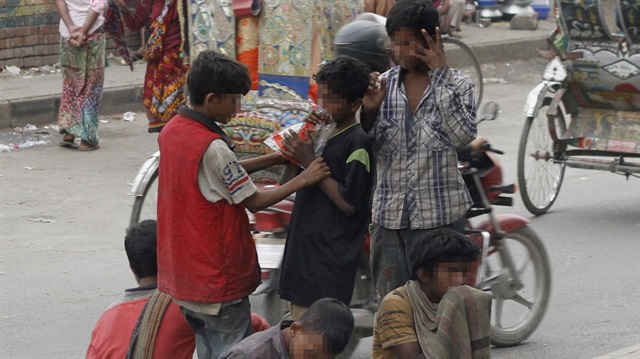

Drug use among Bangladeshi children at alarming level
"I knew my son was in police custody. All of a sudden my son was dead. I couldn't believe it. The police took money and they still killed him," said the mother.
LITTLE DATA
The U.N. High Commissioner for Human Rights, U.S. ambassador to Bangladesh and the European Union have all expressed concern about the killings of drug suspects in Bangladesh.
After a government official in the southern city of Teknaf was gunned down by Rapid Action Battalion police in May, the state-funded National Human Rights Commission sent a letter to the ministry in charge of the police to remind it of human rights.
But Hasina pressed on.
"Drugs destroy a country, a nation and a family," she told parliament in June. "We will continue the drive, no matter who says what."
Most of the killings took place in May, when there were 129 as the campaign began, but then dropped to 38 in June before picking up to 44 in July.
Drugs have long been a concern for the Bangladesh government, which bans consumption of alcohol by Muslims, who make up the vast majority of the population.
But it's not clear how much drug use has grown or even how many people use drugs. Asked for figures, Bangladesh's narcotics deputy intelligence chief said there were none.
"We have no government statistics or non-government statistics about users," Nazrul Islam Sikder said, adding: "But we guess 7 to 8 million."
Drug seizures data from the Department of Narcotics Control suggests the drug trade has grown, but much of the increase happened three years ago, long before Hasina launched the crackdown. The data shows a dramatic increase in methamphetamine or "yaba" pill seizures beginning in 2015.
No one believes the official accounts of the killings, said Rashid Alam, a 50-year-old manager of a garment factory near the field where Islam was shot, but he is more concerned about the scourge of drugs use for communities.
"We understand he is a drug dealer and the police shot him," he said. "That kind of death is okay. Good job, really."
Critics of Hasina say the crackdown is meant to show voters she is responding to popular concerns and to strike fear in political opponents ahead of the election. According to media reports, some of those killed were activists of the opposition Bangladesh National Party.
For Ashrafuzzaman Zaman, liaison officer of the Hong Kong-based Asian Human Rights Commission, the politics of the drug crackdown are clear.
"You kill 200 people and you make 150 million afraid: today or tomorrow you can also be one of them. That is the message the government is giving to the people," he said.
Hasina's office did not respond to the allegations from her critics.
But Home Minister Khan denied the campaign was a cover to target opposition politicians, and said no drug offender is treated differently from another.
"His identity is only as a criminal," he said. "Even if he has a link with the ruling party, he will not be spared."
#Bangladesh
#Drugs
#Dhaka



